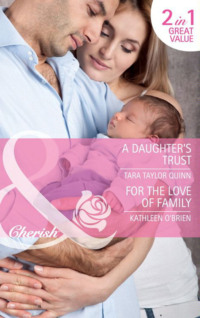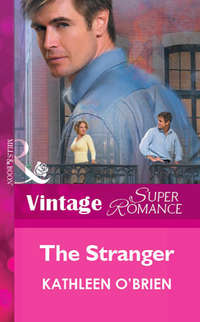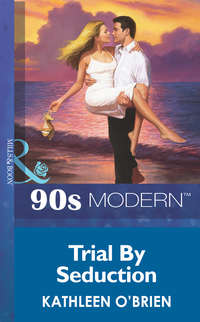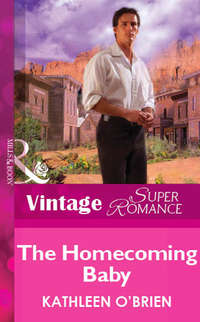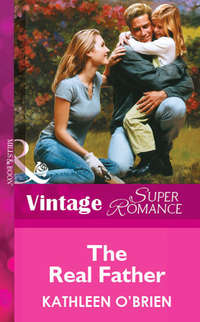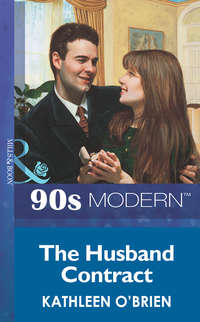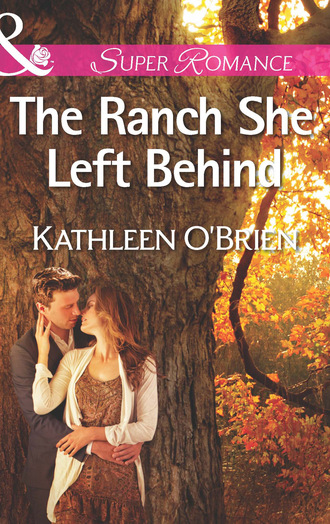
Полная версия
The Ranch She Left Behind
She laughed. “I don’t have a bucket list.”
“You don’t?” Ben looked shocked. He stared at his own. “Not even in your head? In your heart of hearts? You don’t have a list of things you want to do before you die?”
She shook her head.
“Why? You think bucket lists are just for geezers like me?”
“Of course not. I’ve never had any reason to—”
“Well, you do now. You can’t hide forever, Pea. For better or worse, you aren’t like the nun in Ruth’s parlor. You were never meant for that.”
Ruth’s parlor overflowed with lace doilies and antimacassars, Edwardian furniture and Meissen shepherdesses. Ruth had covered every inch of wall space with framed, elaborate cross-stitch samplers offering snippets of poetry, advice and warnings—so many it was hard to tell where one maxim ended and the next one began.
Penny had loved them all, but her favorite had been a picture of a woman putting on a white veil. When Penny moved in, at eleven, she’d assumed the woman was getting married, but Ruth had explained that the poem was really about a woman preparing to become a nun.
The line of poetry beneath the veil read, “And I have asked to be where no storms come.” Penny had adored the quote—especially the way it began with and, as if it picked up the story in the middle. As if the woman had already explained the troubles that had driven her to seek safety in a convent.
“My father murdered my mother,” Penny always imagined the poem might have begun. “And so I have asked to be where no storms come.”
She’d mentioned it to Ben only one time. He gave her a camera for her twelfth birthday, and she took a picture of the sampler, among her other favorite things. When she showed it to him, he had frowned, as if it displeased him to see how much she liked it.
He was frowning now, too. “I hope you’re not still toying with the idea of taking the veil.”
Penny chuckled. “Of course not.” She remembered what Ruth had said when Penny had asked if she was too young to become a nun.
“Far too young,” Ruth had responded with a grim smile, “and far too Methodist.”
“Good.” Ben waved his hand, chasing the idea away like a gnat. “You’d make a horrible nun. You were made for marriage, and children, and love.”
“No.” She shook her head instinctively. No, she definitely wasn’t.
“Of course you are. How could you not know it? The men know it. Every male who sees you falls in love with you on the spot. You make them want to be heroes. Think of poor Officer McGregor out there.”
It was her turn to blush. Penny knew she wasn’t glamorous. She had two beautiful sisters, one as dark and dramatic as a stormy midnight, the other as pale and cool as a snow queen. Penny was the boring one. And if she hadn’t been boring to begin with, these years with Ruth, who didn’t believe in wearing bright clothing or making loud noises, had certainly washed her out to a faded, sepia watercolor of a woman.
The only beauty she had any claim to showed up in her art.
Ben’s affection made him partial. As if to offset Ruth’s crisp, undemonstrative manner, he had always handed out extravagant compliments like candy.
“Don’t be silly, Ben.”
“I’m not. You are. You’ve got that quiet, innocent kind of beauty, which, believe me, is the most dangerous. Plus, you’re talented, and you’re smart, and you’re far too gutsy to spend the rest of your life hiding in that town house.”
She had to smile. She was the typical youngest child—meek, a pleaser, bossed around by everyone, always trying to broker peace. “Come on. Gutsy?”
“Absolutely. You’ve conquered more demons at your young age than most people face in a lifetime. Starting with your devil of a father, and going up through tonight.”
“I haven’t been brave. I’ve simply endured. I’ve done whatever I had to do.”
“Well, what do you think courage is?” He smiled. “It’s surviving, kiddo. It’s doing what you must. It’s grabbing a can of wasp spray and aiming it at the monster’s ugly face.”
She laughed, and shook her head. “And then shaking like a leaf for four hours straight?”
“Sure. For a while you’ll shake. But trust me, by tomorrow, you’ll realize tonight taught you two very important things. One, you can’t hide from trouble—not in a nunnery, and certainly not in a San Francisco town house.”
The truth of that sizzled in the pit of her stomach. She might want to be where no storms come—but was there any such place?
She nodded slowly. “And two?”
“And two...” He took her hand in his and squeezed. “Two...so trouble finds you. So what? You’re a warrior, Penelope Wright. There’s no trouble out there that you can’t handle.”
* * *
MAX THORPE HADN’T been on a date in ten months, not since his wife died. Apparently, ten months wasn’t long enough. Everything about the woman he’d taken to dinner annoyed him, from her perfume to her conversation.
Even the way she ate salad irritated him. So odd, this intensely negative reaction. She’d seemed pretty good on paper—just-turned-thirty to his thirty-four, a widow herself. A professional, some kind of charity arts work on the weekends. His friends, who had been aware that divorce had been in the air long before Lydia’s aneurysm, had started trying to set him up with their single friends about six months after her death, but this was the first time he’d said yes.
Obviously he’d surrendered too soon—which actually surprised him. Given the state of his marriage, he wouldn’t have thought he’d have this much trouble getting over Lydia.
But the attempt to reenter the dating world had gone so staggeringly wrong from the get-go that he’d almost been glad to see his daughter’s cell phone number pop up on his caller ID.
Until he realized she was calling from the security guard’s station at the outlet mall.
Ellen and her friends, who had supposedly been safe at a friend’s sleepover, had been caught shoplifting. The store would release her with only a warning, but he had to talk to them in person.
Shoplifting? He almost couldn’t believe his ears. But he arranged a cab for his date, with apologies, then hightailed it to the mall, listened to the guard’s lecture, and now was driving his stony-faced eleven-year-old daughter home in total silence.
A lipstick. Good God. The surprisingly understanding guard had said it all—how wrong it was morally, how stupid it was intellectually, how much damage it could do to her life, long-term. But Max could tell Ellen wasn’t listening.
And he had no idea how he would get through to her, either.
Ellen had turned eleven a couple of weeks ago. She wasn’t allowed to wear lipstick. But even if she was going to defy him about that, why steal it? She always had enough money to buy whatever she wanted, and he didn’t make her account for every penny.
In fact, he almost never said no to her—never had. At first, he’d been overindulgent because he felt guilty for traveling so much, and for even thinking the D word. Then, after Lydia’s death, he’d indulged his daughter because she’d seemed so broken and lost.
Great. He hadn’t just flunked Marriage 101, he’d flunked Parenting, too.
“Ellen, I need to understand what happened tonight. First of all, what were you and Stephanie doing at the mall without Stephanie’s parents?”
Ellen gave him a look that stopped just shy of being rude. She knew he didn’t allow overt disrespect, but she’d found a hundred and one ways to get the same message across, covertly.
“They let her go to the mall with friends all the time. I guess her parents trust her.”
He made a sound that might have been a chuckle if he hadn’t been so angry. “Guess that’s a mistake.”
Ellen folded her arms across her chest and faced the window.
The traffic was terrible—Friday night in downtown Chicago. It would be forty minutes before they got home. Forty very long minutes. He realized, with a sudden chagrin, that he’d really rather let it go, and make the drive in angry silence. Though he’d adored Ellen as a baby and a toddler, something had changed through the years. He didn’t speak her language anymore.
He didn’t know how to couch things so that she’d listen, so that she’d care. He didn’t know what metaphors she thought in, or what incentives she valued.
The awkward, one-sided sessions of family therapy, which they’d endured together for six months to help her deal with her grief, hadn’t exactly prepared him for real-life conversations.
Even before that, everything had come together in a perfect storm of bad parenting. His job had started sending him on longer and longer trips. Mexico had happened. When he returned from that, he was different—and not in a good way. His wife didn’t like the new, less-patient Max, and he didn’t like her much, either. She seemed, after his ordeal, to be shockingly superficial, oblivious to anything that really mattered in life.
And she had taken their daughter with her to that world of jewelry, supermodels, clothes, diets. When they chattered together, Max tuned out. If he hadn’t, he would have walked out.
He hadn’t blamed Lydia. He knew she clung to her daughter because she needed an ally, and because she needed an unconditional admiration he couldn’t give her. But as the gulf widened between Max and Lydia, it had widened between Max and Ellen, too.
He might not travel that much anymore, but he’d been absent nonetheless.
“Ellen.” He resisted the urge to give up. “You’re going to have to talk to me. Stealing is serious. I have no idea why you’d even consider doing something you know is wrong. You have enough money for whatever you need, don’t you?”
She made a tsking sound through her teeth. “You don’t understand. It’s not always about money.”
“Well, then, help me to understand. What is it about?”
“Why do you even care? I’m sorry I caused you trouble. I’m sorry I interrupted you on your date.”
He frowned. Could his dating already be what had prompted this? He’d talked to her about the dinner ahead of time, and she’d professed herself completely indifferent to when, or whom, he chose to date.
But he should have known. Ellen rarely admitted she cared about anything. Especially anything to do with Max.
“I don’t care about the date,” he said. “It wasn’t going well, anyhow. Right now, all I want is to be here. I want to sort this out with you.”
She laughed, a short bark that wasn’t openly rude, but again, barely. “Right.”
“If you want me to understand, you have to explain. If it’s not about money, what is it about? Are you angry that I went on a date?”
“No. Why should I be? It’s not like Mom will mind.”
He flinched. “Okay, then, what is it?” He took a breath. “Ellen, I’m not letting this go, so you might as well tell me. Why would you do such a thing?”
She unwound her arms so that she could fiddle with her seat belt, as if it were too tight. “You won’t understand.”
“I already don’t understand.”
“It’s like an initiation.”
He had to make a conscious effort not to do a double take. But what the hell? What kind of initiation did eleven-year-olds have to go through?
“Initiation into what?”
“The group. Stephanie’s group.”
“Why on earth would you want to be part of any group that would ask you to commit a crime?”
“Are you kidding?” Finally, Ellen turned, and her face was slack with shock. “Stephanie’s the prettiest girl in school, and the coolest. If you’re not part of her group, you might as well wear a sign around your neck that says Loser.”
A flare of anger went through him like something shot from a rocket. How could this be his daughter? He’d been brought up on a North Carolina farm, by grandparents who taught him that nothing seen by the naked eye mattered. The worth of land wasn’t in its beauty, but in what lay beneath, in the soil. The sweetest-looking land sometimes was so starved for nutrients that it wouldn’t grow a single stick of celery, or was so riddled with stones that it would break your hoe on the first pass.
People, they told him, were the same as the land. Only what they had inside mattered, and finding that out took time and care. Money just confused things, allowing an empty shell to deck out like a king.
For a moment, he wanted to blame Lydia. But wasn’t that the kind of lie that his grandfather would have hated? All lies, according to his grandfather, were ugly. But what he called “chicken lies” were the worst. Those were the ones you told to yourself, to keep from having to look an ugly truth in the eye.
So, no. He couldn’t blame Lydia. First of all, where did Lydia come from? From Max’s own foolish, lusty youth. From his inability to tell the empty shell from the decked-out facade.
And, even more important, why should Lydia’s influence have prevailed over his?
Because he’d abdicated, that’s why. He’d opted out. He’d failed.
But not anymore. He looked at his little girl, at her brown hair that used to feel like angel silk beneath his hands. He remembered the dreams he’d built in his head, as he walked the floor with her at night. He remembered the love, that knee-weakening, heart-humbling rush of pure adoration....
“We’re going to have to make some serious changes,” he said. His tone was somber—so somber it seemed to startle her, her eyes wide and alarmed.
“What does that mean?”
“I’m not sure yet,” he said. “But you should brace yourself, because they’re going to be big changes. We’ve gotten off track somewhere. Not just you. Me, too. We have to find our way back.”
She swallowed, as if the look on his face made her nervous. But she didn’t ask any further questions.
Which was good, because he didn’t have many answers. Only one thing he knew, instinctively. He couldn’t do it here, in Chicago, with the traffic and the malls and the Stephanies. And the memories of Lydia around every corner.
He had no idea how, but he was going to fix this. He was going to stop giving her money, stop assuaging his guilt with presents and indulgence. He was going spend time with her, get to know her and teach her those hard but wonderful life lessons his grandparents had taught him.
And maybe, along the way, he’d relearn some of those lessons himself.
CHAPTER TWO
Two months later
SILVERDELL, COLORADO, HADN’T changed much in seventeen years. Penny had noticed that last year, when she came back as the dude ranch idea was first being considered, and then again when her sister Rowena got married.
But on this visit, she was particularly struck by the snow-globe effect—perhaps because her own world had changed so dramatically. She drove slowly down Elk Avenue, noting how many stores remained from her childhood, and how many of the replacement shops had maintained the feel of their predecessors.
August. Early fall in Silverdell. She remembered it so well. And here it all was. Same big tubs of orange and gold chrysanthemums on the sidewalk, same colorful awnings over shovel-and ski-jacket-filled windows that warned of the winter to come.
Same park square, roiling with what might easily have been the same laughing children.
She slowed now, watching them kick piles of leaves into tiny yellow storms and chase each other, squealing, until someone fell, then got up, giggling, with grass stains on elbows and chin.
She and her sisters, Rowena and Bree, had rarely been part of all that. In fact, she used to watch those mischievous kids and wonder where they got the courage to be so naughty. Didn’t their fathers have tempers, too?
Their fathers...
She knew she ought to go to the ranch. Or at least by her new duplex.
But she knew she wasn’t ready. It didn’t make any sense, but she needed more time to come to terms with being in Silverdell again—and with the big changes that were coming.
It didn’t help to remind herself that they were changes she’d wanted. Changes she’d chosen. Suddenly the changes seemed more than “big.” They seemed crazy. Risky. Terrifying.
Annoyed with herself, but unable to break through the emotional paralysis, she found a parking space and headed into the ice-cream shop. She was hungry and nervous. Even before she had grown a full set of teeth she’d learned that a banana split could make everything better.
Her father and Ruth would both have been horrified—ice cream before lunch? Instead of lunch? But they weren’t here. And she wasn’t a child. Surely this one tiny act of independent thinking wasn’t too much for her, even today.
Baby steps.
“Hey!” The string-bean-shaped young man behind the counter tossed down his magazine and stood at attention, apparently delighted to see her. The shop was empty, so maybe he really was. “What can I get you?”
She glanced at the calligraphy on the menu over his head. “I’d love a banana split. Double whipped cream.”
“Awesome!” He grinned as if she’d said the magic words and began pulling out ingredients. “It’s getting nippy out, and we don’t get much business once it turns cold. We sell hot chocolate, but it takes a lot of hot chocolates to pay the rent, you know?”
She smiled, thinking how close her calculations had been when she decided how much rent she’d need to ask for the other side of her new duplex.
“Yeah,” she said. “I know.”
“About a hundred million,” the young man said, inserting his knife into a banana as carefully as if he were performing surgery. “Plus, there’s no art to making a cup of cocoa. Not like a good banana split.” He arranged the slices into the curved boat, tossing away a couple of bruised bits. “Now this is something you can get creative with.”
A warmhearted ice-cream artist who worried about making the rent but couldn’t force himself to serve a bruised banana. She made a mental note to come in as often as she could. Her sweet tooth didn’t know seasons.
She smiled. See? She hadn’t taken a single bite, and she was already feeling better.
“Go ahead and grab a seat,” he said. “I’m Danny. This is my shop. I’ll make you something special, and bring it to you.”
She arranged herself by the window, dropped her purse on the other side of the table and pulled out her legal pad and pen. Maybe if she worked on her list, she would retrieve her courage, and she could head to Bell River.
She flipped over a couple of pages, filled to the margins with practical information about who to call if the water wasn’t hooked up, or the electricity went wonky. All that was important, but not right now.
The third page... That’s the one that mattered. She tapped her pen against her lips and read what she’d written so far.
The Risk-it List.
The very words looked good, in her favorite turquoise ink, against the yellow lined paper. Last night, when she’d stopped—not wanting to arrive in Silverdell after dark—she had worked on the list. Right before she fell asleep, she’d doodled a small bluebird in the upper right corner of her paper.
The bluebird of happiness. That’s what Ro used to call it. Ro and Bree used to take Penny “hunting” in the woods, with butterfly nets that supposedly were magical, nets that could catch the bluebird that would make everything at Bell River right.
Obviously, they’d never captured one. But Penny had drawn birds, photographed them, been fascinated by them, ever since. This one was fat and contented, and smiled at the list below him.
The Risk-it List. She’d decided it should be twelve items long. She had six entries so far, and two check marks.
Sell town house. Check.
Buy place in Silverdell— Don’t let Bree and Ro overrule. Don’t tell Bree and Ro until purchase complete! Check.
Host a party...wearing a costume.
Learn to juggle.
Learn to dance.
Cut hair.
Seven...Seven...
Penny chewed on the end of her pen—a habit she’d never been able to break—and tried to make up her mind what number seven should be.
Ben had been right, of course. When the shock of the wasp spray incident had worn off, a strange pride took its place. She felt empowered. Why shouldn’t she? She’d prevailed over a big, hulking intruder. She might have been terrified, but she hadn’t panicked. She’d kept her head, and she’d driven him away—without anyone getting seriously hurt.
She’d decided that very day to start the list. And before any doubt could set in, she’d accomplished numbers one and two. Sell the town house—almost frighteningly easy. And buy a small house in Silverdell—much scarier, as she didn’t have time to see it for herself but had to trust Jenny Gladiola, Silverdell’s longtime real estate agent.
But she’d accomplished both, and now here she was, less than three miles from Bell River Ranch. Here to stay. Here to call Silverdell home again, after all these years.
A shiver passed through her. Thanks to Jenny’s discretion, no one in the family yet knew she was in town. Jenny had been a Dellian real estate agent forever, and she’d kept her career flourishing, through good markets and bad, by knowing how to keep her mouth shut.
For now Penny was safe. However, telling Bree and Rowena absolutely had to be next.
Her sisters had been begging her for months to come live at the dude ranch with them. They could use the help, they said. They needed an art teacher, they said. But she knew the truth—they were worried about her. They wanted to slip her into their nest, straight from the nest Ruth had kept her in.
No one wanted her to learn to fly.
But, by golly, she was going to learn anyhow.
So...back to the Risk-it List. What should number seven be? She had to pick very carefully. After the two big jolts of selling the town house and buying the duplex, she wanted the rest of the list to be relatively easy. She’d tackle a few of her phobias—but she wouldn’t set herself up for failure. No wrestling pythons in the rain forest or taking a commercial shuttle to the space station.
Just juggling, costumes, kissing...
Ben would laugh. He was much more the space station type. She’d decided not to call hers a bucket list. It sounded too ambitious. That might come later, after she’d accomplished everything on this one. After she’d learned a little bit about who Penny Wright really was.
Instead, she’d called it the Risk-it List. A list of things she’d never had the nerve to do—though she’d always envied others who did. Things that looked daring, or exciting, or just plain fun. Things that might be mistakes. Things that might make her look silly. Things she had phobias about...
Aha! Phobias!
So seven would be: Ride in a hot air balloon. (fear of heights)
Take a picture of someone famous. (shyness)
Get a beautiful tattoo. (fear of disapproval)
Kiss a total stranger. (fear of...everything)
Go white-water rafting (fear of dying J)
Make love in a sailboat.
Number Eleven, the white-water rafting, would probably be the scariest. She really, really found the rapids terrifying. So obviously she’d left that till toward the end of the list.
But where had that crazy Number Twelve come from? Was it from some movie she’d seen? Some couple she’d spotted setting off into San Francisco Bay...with her imagination supplying the rest?
“What’s so funny?”
Danny, the ice-cream artist, was at her table, holding a bowl so laden with beautifully arranged sweets that she knew she’d never be able to finish it.
He looked for a safe place to set it down. Flushing, she tilted her legal pad toward her chest to hide it, then felt ridiculous. Why did she care whether he saw it?
“Nothing, really,” she said awkwardly. “I just wrote the wrong thing... You know... I mean I spelled it all wrong.”
Argh. Why did she always feel nervous if she did anything remotely unconventional? She was unconventional, darn it. She was an artist at heart, not a banker. She wanted to dress in flamboyant colors and patterns, and laugh loudly, and lie down on the sidewalk to get the best angle on a snail. She wanted to sing and dance and go to parties—and make love in a sailboat.





